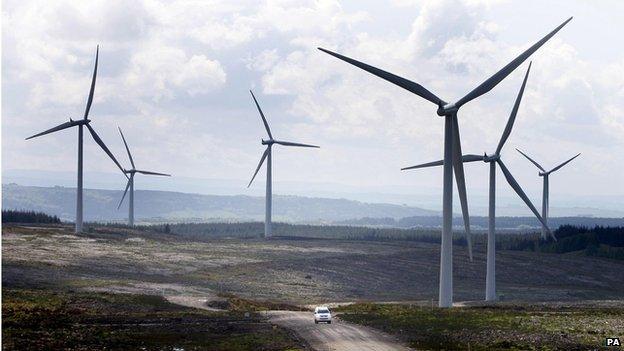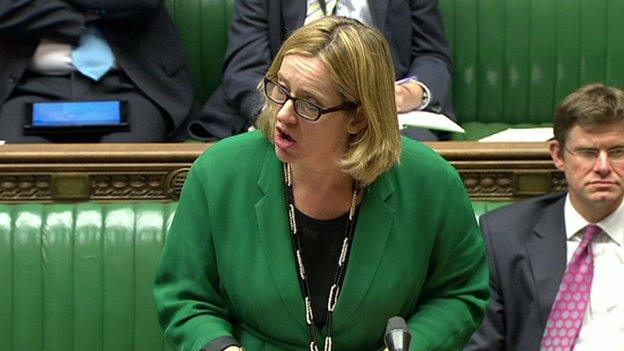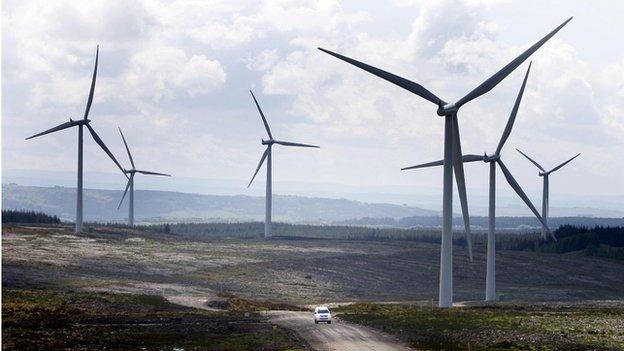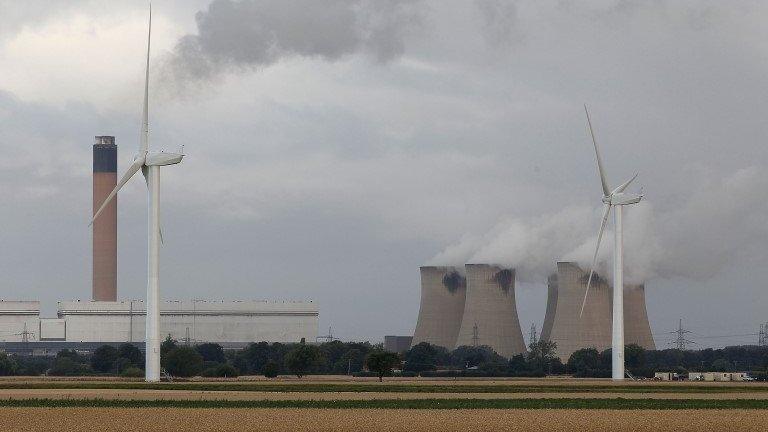Onshore wind farms cancelled as subsidies cut
- Published

Subsidies for new onshore wind farms are ending earlier than expected
About 250 planned onshore wind farms are likely to be cancelled because of an early end to subsidies, the government has said.
New onshore wind farms will be excluded from a subsidy scheme from 1 April 2016, a year earlier than expected.
Energy Secretary Amber Rudd said this was likely to mean 2,500 planned turbines would not be built.
She told MPs the change "draws the line in the right place" and said consumer bills would not rise as a result.
The funding for the subsidy comes from the Renewables Obligation, which is funded by levies added to household fuel bills.
Energy companies had been facing an end to this subsidy - as pledged in the Conservative Party election manifesto, external - in 2017.
In an oral statement, external following last week's announcement, Ms Rudd said onshore wind was an "important" part of the mix, but that "we are reaching the limits of what is affordable and what the public is prepared to accept".
5,061
onshore turbines in the UK
-
18,000 gigawatt hours of electrcity generated by onshore turbines in 2014
-
5.5 million homes could run for a year on that power
-
5.6% of the UK total electricity needs
She said the government's decarbonisation targets would still be met, adding: "Clean energy doesn't begin and end with onshore wind."
A grace period would allow projects that had had the required consent by 18 June to continue, she said, adding that the target of generating 10% of electricity from wind by 2020 was being reached early.

Climate Change Secretary Amber Rudd said bills would not rise as a result of the wind-power cuts
The announcement had been discussed with the devolved governments of Wales, Northern Ireland and Scotland, she said.
After the announcement to end subsidies was made, Scotland's Business, Energy and Tourism Minister, Fergus Ewing, said he had warned the UK government that the decision could be the subject of a judicial review.
Labour's shadow energy secretary, Caroline Flint, said the early end of subsidies was bad for jobs, investment and the environment.
She added: "This debate is not about hot air, it is about jobs, manufacturing and investment opportunities at risk across the sector."
- Published18 June 2015

- Published24 April 2014
